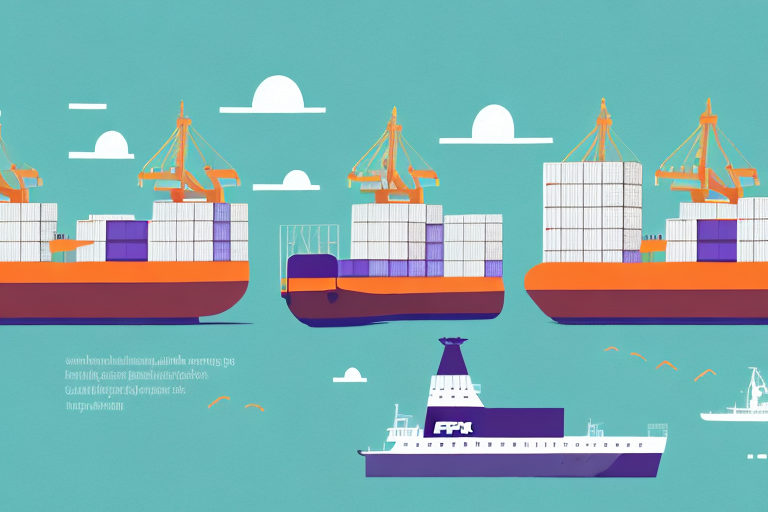Choosing Between FedEx and UPS: An SEO-Optimized Guide for Bulk Shipping
Introduction to Bulk Shipping Carriers
When selecting a shipping carrier for your business, cost is a critical factor. FedEx and UPS are two of the largest players in the shipping industry, both offering competitive rates for bulk shipping. This guide provides a comprehensive comparison of their bulk shipping rates and services to help you determine the best fit for your business needs.
Understanding the Differences Between FedEx and UPS
Service Offerings
FedEx is renowned for its expedited delivery services and exceptional customer support. They provide a wide array of shipping options, including ground, air, and international shipping. UPS, conversely, is celebrated for its reliable service and extensive global delivery network, particularly excelling in international logistics.
Package Tracking Systems
FedEx offers real-time tracking updates, enabling customers to monitor their packages at every stage of transit. UPS provides a more detailed tracking system that includes package location, estimated delivery times, and signer information upon delivery. This enhanced tracking is particularly beneficial for businesses managing multiple shipments simultaneously.
The Significance of Bulk Shipping Rates for Businesses
Impact on Profitability
Bulk shipping rates are vital for businesses that depend on shipping to distribute their products. Shipping costs can significantly influence a company's overall profitability. According to the Statista report, shipping costs account for approximately 12% of the total value of goods shipped globally. Therefore, securing competitive bulk shipping rates is essential.
Product Pricing and Market Competitiveness
Affordable bulk shipping rates allow businesses to maintain competitive product pricing. Without cost-effective shipping solutions, businesses may need to increase product prices, potentially reducing their market competitiveness and affecting sales and revenue.
Selecting the Right Shipping Carrier for Your Business Needs
Assessing Shipment Volume and Type
Choosing the appropriate shipping carrier involves evaluating factors such as shipment volume, product types, and budget constraints. Thorough research and comparison of each carrier’s rates, services, and reputation are essential steps in the decision-making process.
Coverage Area and Delivery Capabilities
Consider the carrier's coverage area. Some carriers may have limited reach in specific regions or countries, which could hinder your ability to serve customers in those areas. Selecting a carrier that offers comprehensive domestic and international coverage is crucial for expanding your business reach.
Environmental Sustainability
Environmental impact is becoming increasingly important for businesses and consumers alike. Some carriers incorporate sustainable practices, such as using electric or hybrid vehicles and offering carbon offset programs. Partnering with a carrier committed to sustainability can enhance your business's environmental responsibility and appeal to eco-conscious customers.
Comprehensive Comparison of FedEx and UPS Bulk Shipping Rates
Below is a detailed comparison of bulk shipping rates between FedEx and UPS for packages weighing between 5 and 50 pounds, shipped within the contiguous United States:
Ground Shipping Rates
- FedEx: Starts at $8.98 for a 5-pound package and $25.41 for a 50-pound package.
- UPS: Starts at $8.23 for a 5-pound package and $24.86 for a 50-pound package.
Air Freight Shipping Rates
- FedEx: Starts at $95.59 for a 5-pound package and $403.26 for a 50-pound package.
- UPS: Starts at $90.52 for a 5-pound package and $402.53 for a 50-pound package.
International Shipping Rates
Both FedEx and UPS offer competitive international shipping rates, which vary based on destination country, package weight and size, and delivery speed. For detailed and up-to-date international rates, refer to the FedEx International Shipping and UPS International Shipping pages.
Additional Services Affecting Cost
Both carriers provide additional services such as insurance, signature confirmation, and various delivery options (e.g., Saturday delivery, specific location delivery). These services can influence the overall shipping cost and should be considered when comparing rates.
Factors Influencing Bulk Shipping Rates
Package Specifications
The weight and dimensions of packages significantly affect shipping rates. Heavier and larger packages incur higher costs due to increased fuel and handling requirements. Additionally, oversized or irregularly shaped packages may attract additional fees.
Shipping Distance and Mode
The distance a package travels and the chosen mode of transportation (air, ground, sea) also impact shipping costs. While air shipping is faster, it is typically more expensive than ground or sea shipping, which may be more cost-effective for non-urgent deliveries.
Additional Fees
Carriers may charge extra for special services such as residential delivery, weekend delivery, or delivery to remote locations. Understanding these potential fees is essential for accurate cost estimation.
Negotiating Better Bulk Shipping Rates with FedEx and UPS
Volume Discounts
High-volume shippers can often negotiate discounts with FedEx and UPS. These volume discounts can provide significant savings, especially for businesses regularly shipping large quantities of packages.
Alternative Shipping Methods
Exploring alternative shipping options, such as regional carriers or consolidators, can lead to lower shipping rates for specific routes or package types. Comparing rates from various carriers ensures you find the most cost-effective solution.
Evaluating Additional Factors Beyond Cost
Delivery Performance and Reliability
Beyond cost, delivery speed and reliability are crucial. Consistent on-time deliveries enhance customer satisfaction and trust in your business.
Customer Service and Support
Effective customer service is vital for resolving shipping issues promptly. Both FedEx and UPS offer robust customer support, but the quality and responsiveness can vary. Evaluating customer reviews and service performance can aid in this assessment.
Specialized Shipping Needs
Depending on the nature of your products, you may require specialized shipping services. For instance, fragile or perishable items demand careful handling and expedited shipping options to ensure product integrity upon delivery.
Maximizing Savings on Bulk Shipping with FedEx and UPS
Utilizing Shipping Software
Implementing shipping software can automate rate comparisons and select the most cost-effective shipping options based on real-time data. Tools like ShipStation and Stamps.com can aid in optimizing shipping processes and reducing costs.
Consolidating Shipments
Consolidating multiple packages into a single shipment can help take advantage of volume discounts and reduce overall shipping expenses.
Regular Invoice Reviews
Regularly reviewing shipping invoices ensures that you are accurately billed and can identify opportunities for cost reductions or errors that need correction.
Building Strong Carrier Relationships
Establishing and maintaining good relationships with your shipping carriers can lead to better negotiation outcomes, preferential treatment, and access to exclusive discounts.
Conclusion
Both FedEx and UPS offer competitive bulk shipping rates and a range of services tailored to different business needs. By conducting thorough research, comparing rates and services, and considering factors beyond cost, businesses can make informed decisions that enhance their shipping efficiency and profitability. Leveraging strategies such as negotiating discounts, utilizing shipping software, and consolidating shipments can further maximize savings and support business growth.



















